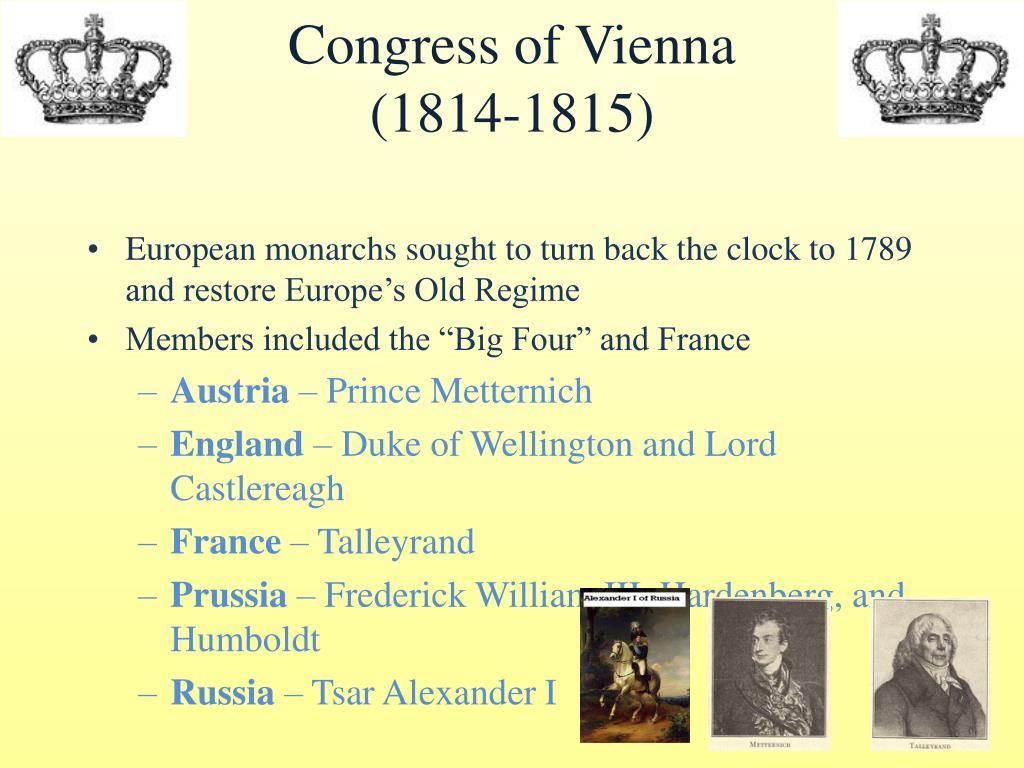
If any leading principle could be discovered in the territorial settlement that was reached at the Congress of Vienna in 1815, it was the restoration of the balance of power. The Vienna system, the political and legal order of Europe after the fall of Napoleonic France, rested on two main pillars. Middle Eastern Organizations/Institutions.International Organizations/Institutions.Use of force, war, peace and neutrality.Statehood, jurisdiction of states, organs of states.Sources, foundations and principles of international law.Relationship between international and domestic law.International law and international relations.International instruments and materials.Here you will find options to view and activate subscriptions, manage institutional settings and access options, access usage statistics, and more. If you believe you should have access to that content, please contact your librarian.įor librarians and administrators, your personal account also provides access to institutional account management. The institutional subscription may not cover the content that you are trying to access. Oxford Academic is home to a wide variety of products. View the institutional accounts that are providing access.View your signed in personal account and access account management features.Some societies use Oxford Academic personal accounts to provide access to their members.Ĭlick the account icon in the top right to: See below.Ī personal account can be used to get email alerts, save searches, purchase content, and activate subscriptions.

Some societies use Oxford Academic personal accounts to provide access to their members. If you do not have a society account or have forgotten your username or password, please contact your society. Do not use an Oxford Academic personal account. When on the society site, please use the credentials provided by that society.If you see ‘Sign in through society site’ in the sign in pane within a journal: Many societies offer single sign-on between the society website and Oxford Academic. Society member access to a journal is achieved in one of the following ways: If you cannot sign in, please contact your librarian. If your institution is not listed or you cannot sign in to your institution’s website, please contact your librarian or administrator.Įnter your library card number to sign in. Following successful sign in, you will be returned to Oxford Academic.When on the institution site, please use the credentials provided by your institution.Select your institution from the list provided, which will take you to your institution's website to sign in.Click Sign in through your institution.Shibboleth / Open Athens technology is used to provide single sign-on between your institution’s website and Oxford Academic. This authentication occurs automatically, and it is not possible to sign out of an IP authenticated account.Ĭhoose this option to get remote access when outside your institution. Typically, access is provided across an institutional network to a range of IP addresses. If you are a member of an institution with an active account, you may be able to access content in one of the following ways: Get help with access Institutional accessĪccess to content on Oxford Academic is often provided through institutional subscriptions and purchases. The apogee of Habsburg strategic statecraft, this system of security endowed Austria with many of the attributes of hegemony at an affordable cost to itself, while creating conditions of European stability that lasted for half a century. This, in turn, obviated the need for large standing military commitments on the scale that would have been demanded to manage Austria’s sprawling position through force alone. The resulting “Vienna system” mitigated the time pressure of managing multiple frontiers while converting long-standing enemies into participants in the maintenance of Austrian power. To protect these enlarged holdings, Habsburg leaders extrapolated on past frontier strategies to build a European-wide security system based on two broad components: a reorganized and fortified network of buffer territories integrating neighboring lands into Austrian defense and elaborate diplomatic structures that mediated conflict and co-opted rivals into the joint management of Habsburg buffers.


In the postwar settlement at the Congress of Vienna, Austria regained lost territories to form an expanded empire whose possessions and dependencies stretched from Venice to Cracow. The Habsburg Monarchy emerged from the Napoleonic Wars in a position of unprecedented strength. This chapter examines Austria at its post-Napoleonic peak, assessing congress diplomacy and the pecuniary, forts-based system that undergirded it.


 0 kommentar(er)
0 kommentar(er)
